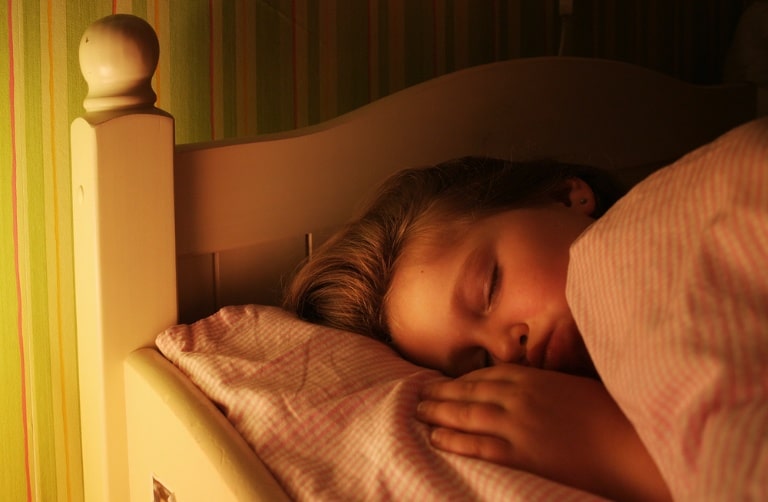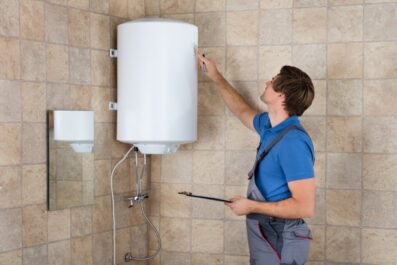Best Ways to Help Fall Asleep Fast Naturally (Backed by Science)

Sometimes, falling asleep at night could be a difficult task. However, the inability to fall asleep is not a reason to stay wide awake at night. Other than deteriorating your health, it will also cause you more harm to your day-to-day functioning. In this article, we’ll give you some ways to help you fall asleep instantly.
A good night’s sleep is very important for adults. It can revitalize your energy and enhance your brain function. While other people have no difficulty falling asleep, some people struggle to fall asleep at night. A bad sleep schedule can affect your brain and body negatively, including poor cognitive function and reduced memory.
Luckily, there are science-backed methods that can make a big difference in how fast you fall asleep and how deeply you rest. One simple yet powerful tool that many people overlook is sound. Using gentle white noise or lullabies, like those from the infant sound machine can help quiet distractions, lower stress, and cue your brain that it’s time to rest.
Establishing the Non-Negotiable: The Power of a Consistent Sleep Schedule
You probably have no idea how powerful it is to have a consistent sleeping schedule. Keeping a regular sleep schedule ensures that your trusty internal body clock stays “on time,” which can help you fall asleep and wake up more easily.
Choose a time that is late enough for you to feel sleepy, but early enough for you to get seven or eight hours of sleep before your alarm goes off. Studies have shown that staying on a schedule can be a big help for your performance during the day. Also, if you often nap in the afternoon, make sure that you limit your naps to one 30-minute nap a day; a nap longer than that will cause you trouble falling asleep later that night.
Having a disciplined routine isn’t only for kids, as even we, adults, can benefit intensely if we stick to our sleeping schedule. In this way, you train your body to stay prepared for the next activity and also understand when it is time to go to sleep. Work towards setting your body clock to understand day and night.
Optimizing the Cave: Creating the Ideal Bedroom Environment (Temperature, Light, and Sound)
According to sleeping experts, the key to falling asleep quickly is a dark, cool, and comfortable room. The temperature range to help you fall asleep faster is between 15 to 23 degrees Celsius. You may feel uncomfortable and unable to fall asleep if your room temperature is too warm. Also, a dark room creates a “time to sleep” signal to your brain to make you feel sleepy.
If your goal is to sleep instantly, try listening to relaxing music or white noise using the best infant sound machine. Studies have found that adults who listen to relaxing music for 45 minutes before going to bed get to sleep faster, longer, wake up less frequently, and wake up feeling more rested. This is in comparison to nights when they do not listen to music. Classical music and slow instrumentals are recommended even for people who suffer from insomnia, and it also seems to help reduce depression.
For some, their solution to sleeplessness and disruptions is white noise. This noise works by drowning out other noises that you may hear, which can keep you awake or wake you up. Having a constant ambient sound in the bedroom has been shown to improve and maintain sleep.
The Golden Hour Rule: Crafting a Relaxing and Predictable Pre-Sleep Routine
There is a rule that the experts call the “Golden Hour Rule”. This rule means dedicating the last hour before bed to relaxation and consistency. Your brain thrives on routines, and when you repeat the same activities every night, it begins to associate them with sleep.
Limit your screen time, dim your lights, and avoid stimulating tasks during this hour. Instead, do some slow-paced activities like reading a book, stretching, or listening to white noise through the best infant sound machine. Doing these habits will help lower your heart rate and signal your body that it’s time to wind down.
If you keep on doing the same routines each night, you train both your mind and body to transition smoothly into rest, making it easier to fall asleep naturally and stay asleep through the night.
Mindful Distraction: Simple Mental Techniques to Stop the Racing Thoughts
If your mind is always full of thoughts at night, you really won’t be able to sleep easily. To stop the racing thoughts in your mind, here’s how to calm your mind and ease into rest:
- Count your breaths
Focus on slow, steady breathing. Count each inhale and exhale to anchor your attention and quiet your thoughts.
- Think of a peaceful scene
Imagine a calm beach or a cozy place. Using your imagination will help redirect your mind from daily worries.
- Repeat a relaxing affirmation
Try phrases like “I am calm and ready to rest” or “My body is letting go of the day.” This will reinforce a sense of safety and relaxation.
- Use soothing background noises
Listen to gentle white noise or soft nature sounds through the best infant sound machine. This will drown out disruptive noises and keep your mind focused on something peaceful.
Harnessing Breath and Body: Relaxation Exercises (Like the 4-7-8) That Calm Your System
Other ways to help fall asleep are practicing a breathing method, like the 4-7-8 breathing method. This technique was developed by Dr. Andrew Weil and is based on pranayama. It involves inhaling for 4 seconds, holding your breath for 7 seconds, and exhaling for 8 seconds.
Here’s how to do it:
- Sit in a comfortable position
- Place the tip of your tongue on the ridge of your gums, just behind the upper front of your teeth
- Expand your diaphragm and slowly inhale through your nose for 4 seconds
- Then hold your breath for 7 seconds
- Slightly open your mouth, keeping your tongue in place, and exhale for 8 counts
- Repeat this pattern 4 times.
This simple technique can help you drift off to sleep in even 30 seconds. This breathing method can slow your heart rate and increase the amount of oxygen in your body.
Dietary Do’s and Don’ts: The Surprising Impact of Food, Caffeine, and Alcohol on Sleep Onset
What you eat and drink before bedtime can affect your sleep onset. Understanding the right dietary habits is one of the most overlooked yet effective ways to help fall asleep naturally. Here’s what to keep in mind:
Do’s:
- Eat light in the evening: Choose foods that are easy to digest, like bananas or yogurt or a small portion of nuts, before bed. These can help promote relaxation and steady blood sugar levels.
- Stay hydrated: Dehydration can cause discomfort, but drinking large amounts of water right before bed may wake you up to pee.
- Include magnesium-rich foods: Spinach, almonds, and avocados can help relax your muscles and nervous system.
Don’ts:
- Avoid caffeine after 2 p.m.: Caffeine blocks adenosine, the chemical that builds sleep pressure and can linger in your system for hours, keeping you alert at night.
- Limit alcohol intake: While a glass might make you feel sleepy initially, it disrupts REM sleep and can cause early awakenings or restless sleep.
- Skip heavy or spicy meals before bed: These can cause indigestion or acid reflux, making it difficult for you to drift off instantly.
When to Get Out of Bed: Breaking the Anxiety Cycle if You Can’t Fall Asleep
There are instances when, no matter how hard you try, sleep just won’t come. As advised by experts, if you can’t fall asleep after 30 minutes of lying in bed, you should get up.
Do a relaxing activity, like reading or journaling. Avoid screens and bright lights. You can also play soft background sounds using the best infant sound machine to stay relaxed while you reset your mind. Return to your bed only when you feel really sleepy. Once your eyelids start to feel heavy, head back to bed. This helps retrain your brain to link your bed only with rest. Lastly, don’t watch the clock like a hawk. Always checking it will only increase anxiety and make falling asleep even harder.
Identifying the Hidden Culprits: Unmasking Technology and Stress as Sleep Blockers
Phones and other devices can be detrimental to sleep quality. The blue light emitted by electronic devices delays your circadian rhythm and suppresses melatonin levels. Sleep experts suggest that you should put your devices away at least 30 minutes before your expected bedtime. They also recommend replacing habits, like watching TV and scrolling on your phone, with relaxing activities, like reading a book or meditating.




